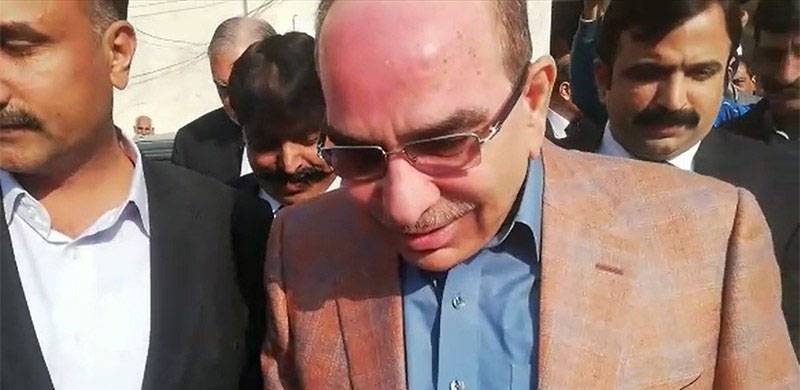
The news of UK's National Crime Agency’s settlement of £190 million with property tycoon Malik Riaz’s family has been fascinating, but the response to it in Pakistan even more so.
The development is, of course, a salutary one insofar as this money is to be returned to Pakistan and it represents a significant recovery of funds moved abroad under dubious circumstances. There remains the issue of the remaining properties after this out-of-court settlement. But such are the ways of a functioning legal system. In fact, herein lies a lesson for some of the more vindictive proponents of accountability within Pakistan. Perhaps they ought to look to the possibilities and limits of accountability efforts in the country where we get our own democratic system from, i.e. the United Kingdom.
The conversation in Pakistan, however, has been anything but sober. Instead, there are two aspects to how the story has been reported and commented upon in Pakistan – in mainstream as well as social media.
First is the relative erasure of Malik Riaz from a story where he is, in actual fact, a central figure. Aside from the country's largest English daily Dawn, it seems the rest of the media are unable to report, analyze or comment upon the affairs of this property tycoon. That is particularly strange, given how the story could potentially strengthen the ruling party's narrative that large sums of money have been spirited away abroad and could potentially be recovered if accountability procedures – here and there – are sufficiently enthusiastic and robust. One is forced to ask: what it is about Pakistan's largest property tycoon that makes his business activities and legal affairs such a difficult topic to mention on mainstream media?
Second, to the extent that the story has been commented upon in the mainstream in Pakistan, there seems to be an effort to switch around the importance of the various dramatis personae. More specifically, those who are hesitant to talk about Malik Riaz nevertheless seem very eager to highlight the fact that some of the property that is part of this settlement was sold to the tycoon by Hassan Nawaz, son of former PM Nawaz Sharif.
This is all the more unfortunate since in actual legal and procedural terms the Sharif family has little to do with the settlement under discussion.
It seems that some business empires in Pakistan are fair game, under all circumstances. And others are beyond discussion, come what may.
The development is, of course, a salutary one insofar as this money is to be returned to Pakistan and it represents a significant recovery of funds moved abroad under dubious circumstances. There remains the issue of the remaining properties after this out-of-court settlement. But such are the ways of a functioning legal system. In fact, herein lies a lesson for some of the more vindictive proponents of accountability within Pakistan. Perhaps they ought to look to the possibilities and limits of accountability efforts in the country where we get our own democratic system from, i.e. the United Kingdom.
The conversation in Pakistan, however, has been anything but sober. Instead, there are two aspects to how the story has been reported and commented upon in Pakistan – in mainstream as well as social media.
First is the relative erasure of Malik Riaz from a story where he is, in actual fact, a central figure. Aside from the country's largest English daily Dawn, it seems the rest of the media are unable to report, analyze or comment upon the affairs of this property tycoon. That is particularly strange, given how the story could potentially strengthen the ruling party's narrative that large sums of money have been spirited away abroad and could potentially be recovered if accountability procedures – here and there – are sufficiently enthusiastic and robust. One is forced to ask: what it is about Pakistan's largest property tycoon that makes his business activities and legal affairs such a difficult topic to mention on mainstream media?
Second, to the extent that the story has been commented upon in the mainstream in Pakistan, there seems to be an effort to switch around the importance of the various dramatis personae. More specifically, those who are hesitant to talk about Malik Riaz nevertheless seem very eager to highlight the fact that some of the property that is part of this settlement was sold to the tycoon by Hassan Nawaz, son of former PM Nawaz Sharif.
This is all the more unfortunate since in actual legal and procedural terms the Sharif family has little to do with the settlement under discussion.
It seems that some business empires in Pakistan are fair game, under all circumstances. And others are beyond discussion, come what may.
